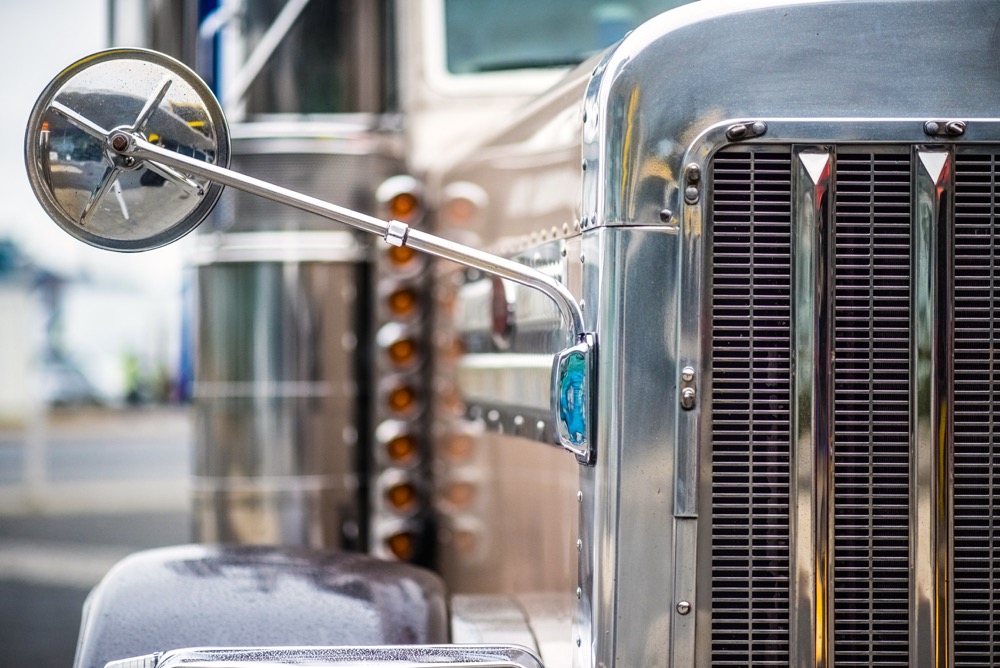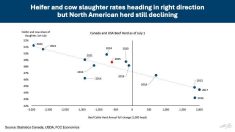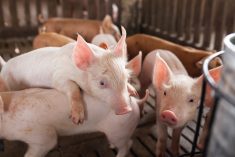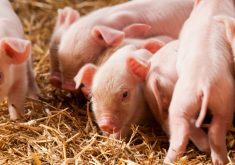There have not been enough trucks on the road to keep the pork sector ticking smoothly, and the Manitoba Pork Council says it is seeing serious impacts.
General manager Cam Dahl said that, as well as general transportation disruptions through the sector, there have been issues with trucks at the Canada-U.S. border.
“I’m getting reports from producers, multiple reports, that scheduled shipments into the U.S. have been cancelled because of lack of drivers and that feed ingredients like soybean meal that is scheduled to come up from the U.S., those shipments are being cancelled — to the point that I’m hearing reports from producers that there are on-farm feed shortages now,” he said.
Read Also
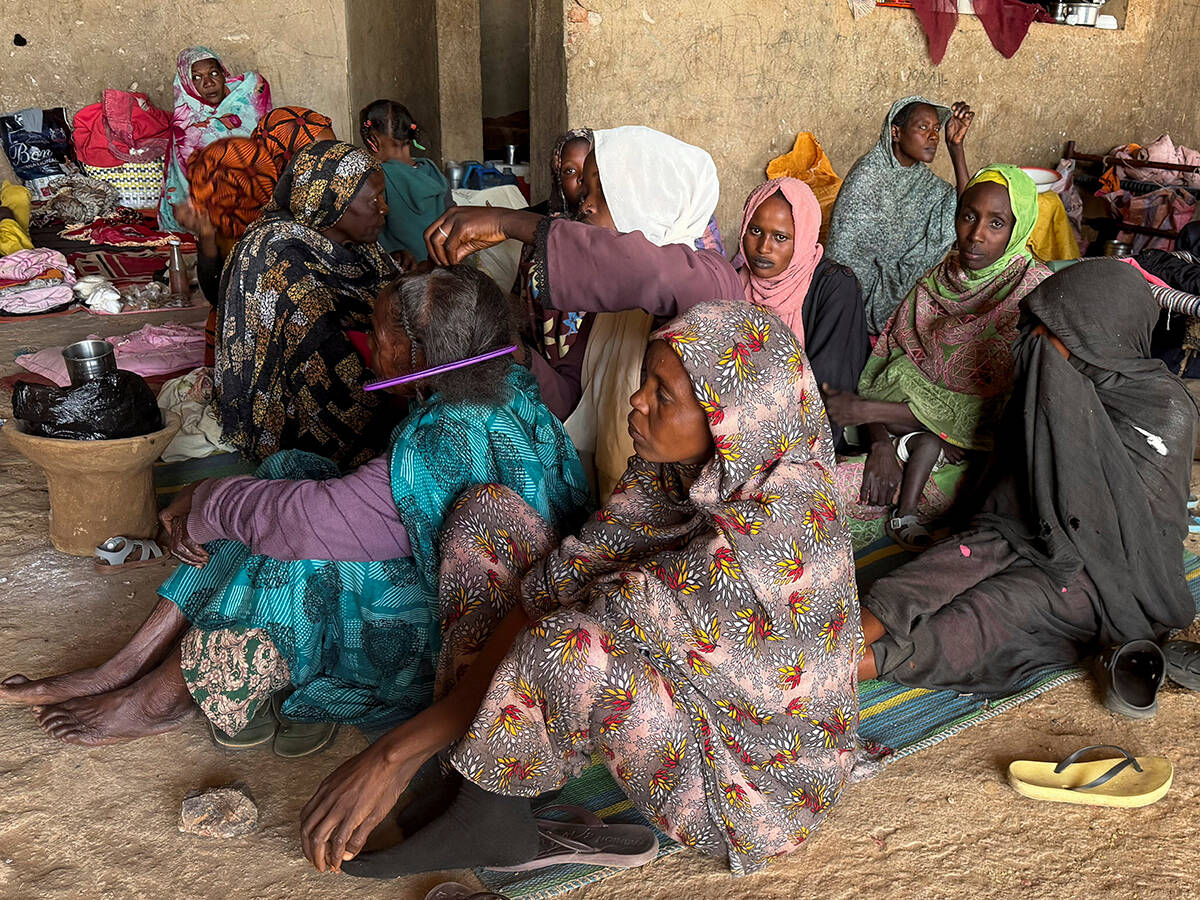
Global humanitarian aid slashed by one-third
Humanitarian aid around the world was cut by a third in 2025 and Canada is one of the culprits.
Why it matters: Transportation is one among several steps on the value chain facing staff shortages.
Those shortages have done little to help already high feed prices, he noted.
The industry was already finding feed more expensive, driven by some of the highest grain prices in recent memory as well as lack of supply.
“Producers have had to look further abroad for feed, because in many cases it’s just not available in Manitoba,” Dahl said. “Operations that in the past normally produce all their own feed are having to go out and buy it at this point. And then, of course, things like soybean meal coming up out of the States is an important ingredient in making feed here in Manitoba, and that’s being constrained.”
The driver shortage is partly due to sheer demand, particularly for grain shipments, while COVID-19 case spikes and the Omicron variant have left fewer staff at work, Bill Rempel of Steve’s Livestock Transport said.
The last few years have seen a general driver shortage in North America, Rempel added, which he says is largely driving the pork sector’s shipping issues now.
According to a Jan. 11 release from the Canadian Trucking Alliance, the nation’s trucking industry saw a record eight per cent vacancy rate in the third quarter of 2021.
Vaccination mandate
The sector is concerned that incoming vaccination requirements at the international border will exacerbate the issue.
All truckers coming into Canada must be fully vaccinated or, if a Canadian driver who is partially vaccinated or unvaccinated, must face testing and quarantine upon re-entry as of Jan. 15.
“It’s a difficult one,” Dahl said, looking at the balancing act between public health and protecting business. “It’s also incredibly difficult to get calls from producers when they’re saying, ‘I can’t get feed,’ or, ‘My weanlings are scheduled to go to the States. They can’t wait forever and all my shipments have been cancelled.’ What is that balance and how do we achieve it? We need to work on that.”
The trucking industry briefly believed that Canadian truckers would be exempt from the requirements following a Jan. 12 statement from the Canadian Border Services Agency to media.
The next day, however, a joint statement from federal health, transportation and public safety ministers said that would not be the case.
The U.S. is expected to implement its own vaccination mandate for truckers Jan. 22.
It’s hard to say how many loads will be impacted out of his own company due to the mandate, Rempel said.
He estimated the requirements will take another 10 to 15 per cent of drivers out of the labour pool, numbers also cited by the Canadian Trucking Alliance to various media.
“That will be a significant disruption in the supply chain and for our business as well,” he said.
Market impact
The transportation lull and general stress on the industry have been felt in pork prices, according to Bill Alford, general manager of H@MS Marketing Services Co-op.
They have noted volatility in the futures market.
“In general, it’s all affected,” he said, pointing to transportation issues not only at the border, but also domestically thanks to the scramble for staff.
COVID-19 spread has been a big part of that picture, he said, while shipment schedules have also been impacted by the current struggle with porcine epidemic diarrhea in hog barns and the risk of spreading that disease.
Prolonged transportation issues at the border could also have impacts for Manitoba’s weanling market, Dahl also said.
The bottom fell out of weanling prices in 2020, when COVID-19 cases saw significant U.S. processing bottlenecks. With American market hogs piling up, the market saw a sharp drop in demand for replacement animals from Manitoba.
Alford noted, however, that the meat sector has learned lessons on operating under pandemic conditions since those backlogs.




